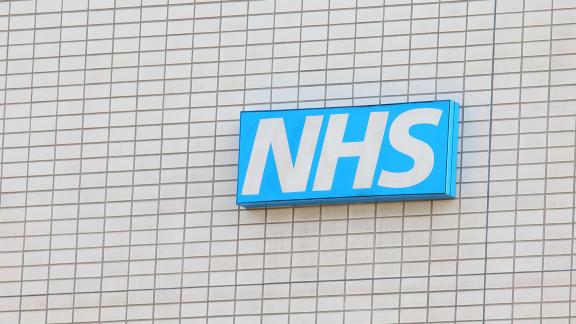Spring Statement 2022: what you need to know
Key points
- Since the October 2021 Spending Review, inflation has continued to increase at rates not seen in decades. As a result, the Institute for Fiscal Studies estimates the NHS England budget is now expected to grow by 3.6 per cent per year in real terms, compared with 4.1 per cent in October. This will have a significant impact on the NHS’s ability to meet efficiency targets and reduce the backlog.
- There were no new increases in health spending in the Spring Statement. Instead, the Chancellor confirmed that the new health and care levy will go ahead, and that the NHS efficiency target will double from 1.1 per cent to 2.2 per cent. This will include a review of arm’s-length bodies.
- While there is always scope for increased efficiency savings, providers up and down the country are operating with reduced capacity due to the need to separate out the care provided to COVID-19 patients and those without. This continues to leave the NHS with less capacity to treat non-COVID-19 patients and therefore to improve efficiencies. And many providers are already having to deliver efficiency savings of beyond 2.2 per cent.
- A concession has been made on fuel duty, with a reduction of 5p for one year. This follows joint calls by us and NHS Providers for the Chancellor to act on the issue. The 5p reduction will help, but the Treasury will need to go further to shield community-based healthcare staff from soaring prices at the pumps as they rely on their cars to visit patients, including those who are housebound. We recommend that staff are given more help through the mileage rate reimbursements and business tax relief.
- Other relevant announcements include a doubling of the household support fund (intended for councils to support vulnerable households) to £1 billion and an HMT review of the apprenticeship levy, to make it more effective.
- The statement failed to address several of our ongoing policy concerns. Workforce, ongoing COVID-19 costs, inflationary pressures for the NHS and those most vulnerable in society remain unaddressed. The focus now turns to the Budget in the autumn.

What was announced?
The Spring Statement is one of two spending statements that the Chancellor and the Treasury (HMT) make to parliament each year. It is the ‘lesser’ statement, with the Budget in the autumn generally where the government announces significant spending or policy changes. *
There were no new health announcements in today’s Statement. HMT did confirm two existing trailed policies:
- The new 1.25 per cent health and care levy will go ahead on 1 April and National Insurance (NI) thresholds will rise from £9,880 to £12,570 from July 2022.
- The NHS efficiency commitment will double from 1.1 per cent to 2.2 per cent a year.
While the Chancellor said that every penny raised from the new levy will go towards health and social care budgets, the NHS budget will not decrease because of the NI threshold change. This is because the new levy was never fully hypothecated.
The two other most relevant non-health measures announced by the Chancellor were:
- A 5p reduction in fuel duty for one year.
- A doubling of the household support fund for councils to support vulnerable households to £1bn.
The Chancellor also signalled that from 2024 the basic rate of income tax will decrease to 19 per cent and that he will further investigate how the apprenticeship levy can be used more effectively.
Analysis
The Spring Statement follows the multi-year Spending Review in October 2021, which set out an increase in NHS service and departmental capital funding to 2024/25.
Since the Spending Review, however, inflation has continued to increase to levels not seen in decades ** ; and energy costs have likely doubled for many NHS trusts. As a result, the Institute for Fiscal Studies estimates the NHS England budget is now expected to grow by 3.6 per cent per year in real terms, compared with 4.1 per cent in October. These costs will likely increase owing to the war in Ukraine, making the job of reducing the elective backlog and meeting other areas of rapidly rising demand even harder. The Chancellor did little to alleviate these increasing costs for the NHS.
At the same time, the impact of rising costs on households risks pushing many thousands more people into poverty. Poverty is a key driver of poor physical and mental health. Increased rates of poverty mean worse health outcomes, potential inability to work, increased pressure on the NHS and will undermine its ability to clear the backlog. This could undermine the government’s levelling-up agenda. The 5p reduction in fuel levy will help some NHS staff, but pressure will grow to compensate staff during the forthcoming Agenda for Change pay negotiations.
The Spring Statement does little to alleviate health leaders’ concerns about who pays for testing
We were disappointed there was no mention of the Shared Prosperity Fund but welcome the publication of the Levelling Up Fund’s Second Round Prospectus shortly after the Statement. The NHS has an important role to play in driving local growth and developing the plans to access the funds. We look forward to seeing and examining the details for both, as well as working with our members to help drive their involvement and presence in places.
Without a clear view of future workforce supply, it is more difficult for NHS leaders to plan to increase services
The Spending Review left a large amount of the funding settlement unallocated. At the time, we highlighted that there was no plan for how to deal with ongoing COVID-19 costs such as testing. The Spring Statement does little to alleviate health leaders’ concerns about who pays for testing; this could cost NHS organisations hundreds of millions of pounds if they must fund testing from existing budgets. Or it could end up costing NHS staff directly out of their own pockets. We continue to call for the government to fund this directly.
Similarly, despite the Secretary of State for Health and Social Care saying a new workforce plan will is expected in a few months' time, no new money has been allocated for staff supply or pay increases to match inflation and Health Education England has yet to have its budget finalised. Without a clear view of future workforce supply, it is more difficult for NHS leaders to plan to increase services. We welcome further reviews into how the apprenticeship levy is used and look forward to working with the government to make it more effective.
Pressure is now on the Chancellor to increase spending at the Autumn Budget
Finally, while there is always room for improvement and scope for increased efficiency savings, the NHS is still facing an uncertain period, with the threat from COVID-19 far from over. Hospitals up and down the country are operating with reduced capacity given the need to separate the care provided to COVID-19 patients and those without. This continues to leave the NHS with less capacity to treat non-COVID-19 patients and therefore to improve efficiencies.
Pressure is now on the Chancellor to increase spending at the Autumn Budget. By then, the impact of inflation on the cash increase in NHS spending will be clearer, as will the ongoing impact of COVID-19 on services and a potential rise in the energy price cap in October.
Key actions for members
As part of our financial influencing work, we will continue to engage with our members on where this budget update leaves local services and what needs to happen next. Please contact Jonathan Barron with your feedback.
Our ICS Network and NHS Clinical Commissioners joint finance forum meets bi-monthly to explore key finance policy issues which will shape the future of the NHS and to engage with national policy stakeholders. The forum is open to integrated care system and clinical commissioning group members with an interest in finance, not just to specific role holders. If you would like to get involved or find out more, please contact Ed Jones.
How we will be supporting members
- We will continue to meet with senior leaders across NHS England and NHS Improvement, HM Treasury, the Department of Health and Social Care and others to influence how this money is spent. As part of our ICS finance forum and references groups, we will work to understand the ongoing impact of rising costs on NHS organisations and what members need to address these concerns.
- We will draft a formal representation to the Autumn Budget, leading with members’ funding concerns from the forthcoming winter.
- Finally, we will also continue to raise concerns in the media and in public debate about the impact of soaring inflation on NHS budgets, as well as on the welfare of NHS staff.



